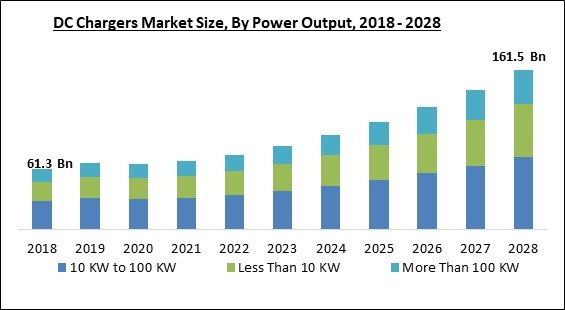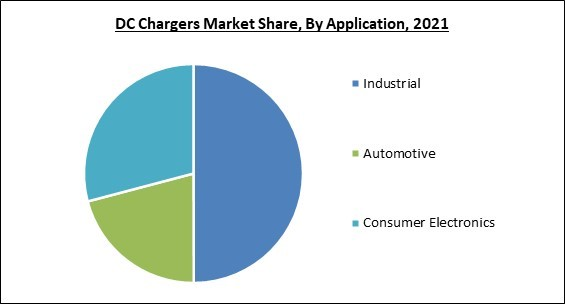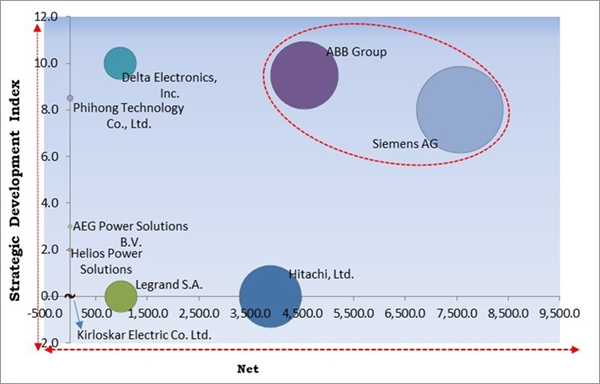DC charging, as the names indicates, delivers DC power directly to the battery of any battery powered motor or processor, such as an electric vehicle (EV). The AC-to-DC conversion takes place in the charging station prior to the stage, at which the electrons travel to the car. Because of this, DC fast charging can deliver a charge significantly more quickly than Level 1 and Level 2 charging.
For long-distance EV travel and the continuous expansion of EV adoption, direct current (DC) fast charging is essential. Alternating current (AC) electricity is provided by the electric grid, while direct current (DC) power is stored in EV batteries. An EV receives AC electricity when a user utilizes Level 1 or Level 2 charging, which must be rectified to DC prior to being stored in the battery of the vehicle.
The EV has an integrated charger for this purpose. DC chargers deliver DC electricity. In addition to being used to charge batteries for electronic devices, DC batteries are also used in automotive and industrial applications. The input signal is converted to a DC output signal by them. For the majority of electronic equipment, DC chargers are the preferred form of charger.
As opposed to AC circuits, a DC circuit has a unidirectional flow of current. When it is not practical to transfer AC power, DC electricity is employed. The charging infrastructure has developed to keep up with the changing landscape of electric vehicles, which now includes a wide range of car brands, models, and types with ever-larger battery packs. For public usage, private business, or fleet sites, there are now more options.
COVID-19 Impact Analysis
Due to the lockdown scenario, facilities manufacturing DC chargers were temporarily closed. The supply of DC chargers in the market was impeded owing to this. The work-from-home has made it more challenging to manage everyday activities, requirements, routine work, and supplies, which has led to delayed projects and missed chances. However, as people are working from home, the consumption of various consumer electronics was spurred during the pandemic, which increased the demand for DC chargers.Market Growth Factors
An Upsurge In The Adoption Of Electric Vehicles Across The World
The adoption of electric vehicles is booming all over the world. With a number of advantages, including cheaper running costs than traditional gasoline engines, the enforcement of robust government rules to decrease environmental pollution, as well as a reduction in exhaust emissions, electric vehicles are becoming increasingly popular around the world. In order to take advantage of the market potential, major players in the DC chargers market are also taking a number of strategic actions, such as product development and product launch.Simple To Use And Widely Available In The Market
One of the most major advantages of the DC charger is that it is very easy to deployed. The fact that it is simple to store in batteries is a major benefit. Because they need to store it, portable electronics, like flashlights, cell phones, and laptops need DC power. Since plug-in cars are portable, they also utilize DC batteries. Because it flips back and forth, AC electricity is a little more complex. One of the biggest benefits of DC is that it can be efficiently delivered across great distances.Market Restraining Factors
Lack Of Required Infrastructures To Operate Evs And Dc Chargers
Strong EV charging infrastructure is necessary for the adoption of electric vehicles. Electric vehicles have not yet entered the mainstream despite their economic and environmental benefits. The absence of charging stations limits the market for electric vehicles. A nation needs a substantial number of charging stations at specific distances in order to enhance the sales of electric automobiles.Power Output Outlook
On the basis of Power Output, the DC Chargers Market is segmented into Less than 10 KW, 10 KW to 100 KW, and More than 10 KW. In 2021, the 10 KW segment garnered a significant revenue share of the DC charger market. An increase in the growth of the segment is attributed to the rising consumption of consumer electronic devices with small batteries, such as smartphones and laptops. Due to the fact that the lifestyle of people is increasingly becoming hectic and busy, the need for faster charging to reduce time is surging.Application Outlook
By Application, the DC Chargers Market is segregated into Automotive, Consumer Electronics, and Industrial. In 2021, the consumer electronics segment registered a substantial revenue share of the DC chargers market. the growth of the segment is rising at a very rapid pace owing to the fact that an increasing number of market players all over the world are increasing their focus on meeting the demand of customers for better charging alternatives.Regional Outlook
Region-Wise, the DC Chargers Market is analyzed across North America, Europe, Asia-pacific, and LAMEA. In 2021, Asia-Pacific held the largest revenue share of the DC chargers market. Increased government initiatives to install DC chargers in Countries, like China and japan, growing investments in the development of DC fast-charging station infrastructure, and the faster charging speeds of DC fast chargers compared to other chargers are primarily responsible for this market segment's high growth rateCardinal Matrix - DC Chargers Market Competition Analysis
The major strategies followed by the market participants are Product Launches. Based on the Analysis presented in the Cardinal matrix; ABB Group and Siemens AG are the forerunners in the DC Chargers Market. Companies such as Delta Electronics, Inc. and Phihong Technology Co., Ltd. are some of the key innovators in DC Chargers Market.
The market research report covers the analysis of key stake holders of the market. Key companies profiled in the report include ABB Group, Siemens AG, Delta Electronics, Inc., Phihong Technology Co. Ltd., Kirloskar Electric Co. Ltd., Hitachi, Ltd., Legrand S.A., Helios Power Solutions, AEG Power Solutions B.V., and Statron AG.
Strategies deployed in DC Chargers Market
; Partnerships, Collaborations and Agreements:
- Aug-2022: Delta Electronics came into an agreement with EVgo, the Largest EV Fast Charging Network in America. Under this agreement, Delta is expected to provide its 1,000 ultra-fast chargers to EVgo in order to reduce the supply chain risk and streamline fast charging deployment targets within the US.
- Jul-2022: Siemens partnered with ConnectDER, a plug-and-play grid integration solution provider. Following this partnership, the company aimed to offer Plug-in Home EV Charging Solution. This solution is expected to allow EV owners to charge their vehicles EVs by connecting chargers directly via the meter socket.
- Apr-2022: ABB teamed up with Shell, a multinational oil and gas company. Following this collaboration, the companies is expected to offer high-quality and flexible charging solutions to owners of electric vehicles across the world.
- Feb-2022: Phihong Technology came into an agreement with Shell, a British multinational oil and gas company. Under this agreement, Phihong is expected to provide charging stations spanning from 30 kW to 360 kW to Shell in several markets across Europe, the MEA, North America, and Asia.
- Jun-2020: Delta came joined hands with Groupe PSA, a French multinational automotive manufacturing company. Following this collaboration, the company aimed to foster e-mobility within Europe and further by developing a complete range of DC and AC solutions with the capability of fulfilling the rising demands of several charging scenarios.
- Mar-2020: Helios came into a partnership with Synqor, a leader in power conversion solutions. This partnership aimed to integrate the expertise of Synqor and Helios to provide design, local technical support, as well as customization capabilities to companies.
; Product Launches and Product Expansions:
- Jun-2022: Delta introduced SLIM 100, a novel EV charger. The new solution aimed to offer simultaneous charging for more than three vehicles while also providing AC and DC charging. In addition, the new SLIM 100 encompasses the ability to supply 100kW of power through a single cabinet.
- May-2022: Phihong Technology launched an EV charging solutions portfolio. The new product range includes the Dual Gun Dispenser, which aimed to minimize space requirements when deployed in a parking lot. In addition, the new 4th-generation Depot Charger is an automated charging system with the capability of electric buses.
- Feb-2022: Siemens released VersiCharge XL, an AC/DC charging solution. The new solution aimed to allow rapid large-scale deployment and streamline the expansion as well as maintenance. In addition, the new solution is expected to also help manufacturers to save time and cost and reduce construction waste.
- Sep-2021: ABB rolled out the new Terra 360, an innovative all-in-one Electric Vehicle charger. The new solution aimed to offer the fastest charging experience available across the market. Moreover, the new solution can simultaneously charge more than four vehicles through its dynamic power distribution capabilities as well as 360 kW maximum output.
- Jan-2021: Siemens rolled out the Sicharge D, one of the most efficient DC chargers. The new solution is designed to facilitate charging for EV owners at highway and urban fast charging stations as well as city parking and shopping malls. Moreover, the new Sicharge D is expected to also offer higher efficiency and scalable charging power along with dynamic power sharing.
- Dec-2020: Phihong introduced its new Level 3 DW Series, a range of 30kW Wall-Mount DC Fast chargers. The new product range aimed to offer enhanced performance along with time-saving advantages, such as charging speeds more than four times faster than traditional 7kW AC chargers.
- May-2020: AEG Power Solutions launched the Protect RCS MIPe, its new generation of switch mode modular DC charger. With this launch, the company aimed to offer high power density within a compact design as well as built-in protection. Moreover, the new solution also encompasses a robust MIPe rectifier owing to a broader operating input voltage.
- Mar-2020: Delta unveiled the 100kW DC City EV Charger. The design of the new 100kW DC City EV Charger aimed to enable increased availability of charging services by manufacturing power module replacement simple. Moreover, it is expected to also ensure constant operation in case of power module failure.
; Acquisitions and Mergers:
- Jan-2022: ABB announced the acquisition of a controlling stake in electric vehicle (EV) commercial charging infrastructure solutions company InCharge Energy. The transaction is part of ABB E-mobility’s growth strategy and is intended to accelerate the expansion of its portfolio to include turnkey EV infrastructure solutions to private and public commercial fleets, EV manufacturers, ride-share operators, municipalities, and commercial facilities owners.
; Expansions:
- Aug-2022: Phihong Technology expanded its business with the launch of Zerova. Through this business expansion, the company aimed to serve the electric vehicle charging market by developing a range of charging solutions, such as Level 3 DC chargers as well as Level 2 AC EVSE.
- Jun-2022: ABB expanded its geographical footprint in Italy with the opening of its new DC fast charger production facility in Valdarno. This geographical expansion is expected to enable the company to manufacture a complete suite of ABB DC charging solutions at an unprecedented scale.
Scope of the Study
Market Segments Covered in the Report:
By Power Output
- 10 KW to 100 KW
- Less Than 10 KW
- More Than 100 KW
By Application
- Industrial
- Automotive
- Consumer Electronics
By Geography
- North America
- US
- Canada
- Mexico
- Rest of North America
- Europe
- Germany
- UK
- France
- Russia
- Spain
- Italy
- Rest of Europe
- Asia Pacific
- China
- Japan
- India
- South Korea
- Singapore
- Malaysia
- Rest of Asia Pacific
- LAMEA
- Brazil
- Argentina
- UAE
- Saudi Arabia
- South Africa
- Nigeria
- Rest of LAMEA
Key Market Players
List of Companies Profiled in the Report:
- ABB Group
- Siemens AG
- Delta Electronics, Inc.
- Phihong Technology Co. Ltd.
- Kirloskar Electric Co. Ltd.
- Hitachi, Ltd.
- Legrand S.A.
- Helios Power Solutions
- AEG Power Solutions B.V.
- Statron AG
Unique Offerings from the Publisher
- Exhaustive coverage
- The highest number of Market tables and figures
- Subscription-based model available
- Guaranteed best price
- Assured post sales research support with 10% customization free
Table of Contents
Companies Mentioned
- ABB Group
- Siemens AG
- Delta Electronics, Inc.
- Phihong Technology Co. Ltd.
- Kirloskar Electric Co. Ltd.
- Hitachi, Ltd.
- Legrand S.A.
- Helios Power Solutions
- AEG Power Solutions B.V.
- Statron AG











